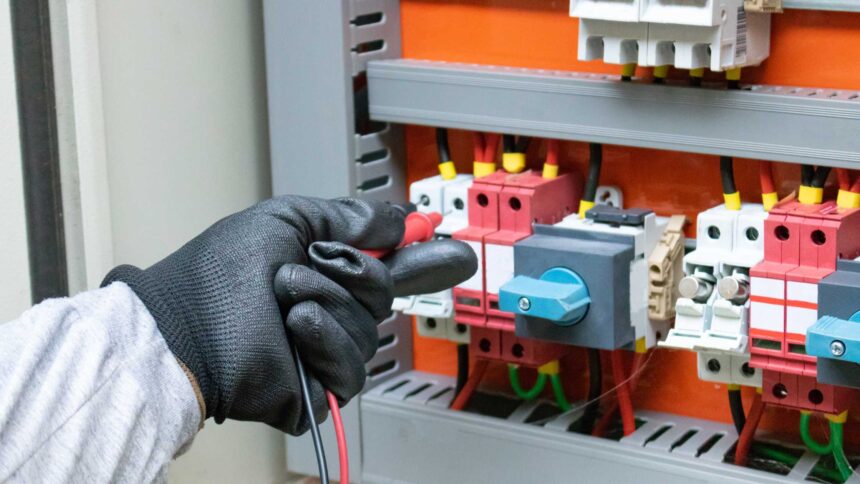What are Inverters?
In our electricity-dependent world, inverters play a crucial role in ensuring our devices receive the power they need. But what exactly are inverters, and how do they function? This comprehensive guide delves into the world of inverters, exploring their inner workings, various types, and how to leverage them effectively.
How do Inverters Work?
Fundamentally, an inverter is a device that converts direct current (DC) into alternating current (AC). Imagine a battery – it provides DC power. Inverters take this DC electricity and convert it into AC, the type of electricity that powers most appliances and electronics in our homes and offices. This conversion process involves rapidly switching the DC input using transistors or similar components, creating a specific AC voltage and frequency at the output.
Types of Inverters

Inverters come in various shapes and sizes, each catering to specific applications.
- Grid-Tie Inverters: These inverters are the workhorses of solar power systems. They convert the DC electricity generated by solar panels into AC electricity that can be fed back into the utility grid.
- Off-Grid Inverters: Designed for standalone power systems, off-grid inverters convert DC battery power into AC electricity for powering homes, cabins, or RVs away from the grid.
- Power Inverters: These portable inverters typically connect to a car’s 12V DC cigarette lighter socket and provide AC power for charging laptops, powering small appliances, or running tools on the go.
- Microinverters: A relatively new technology, microinverters are attached to individual solar panels rather than a central unit.
Advantages and Disadvantages of Inverters
Advantages:
- Power Availability: Inverters ensure a continuous flow of AC electricity even during power outages, making them ideal for backup power systems.
- Renewable Energy Integration: Grid-tie inverters facilitate the use of solar power by converting solar panel output into usable AC electricity.
- Portable Power: Power inverters provide AC power on the go, making them valuable for camping, road trips, or powering tools at remote locations.
Disadvantages:
- Efficiency Losses: The conversion process from DC to AC isn’t perfect, and some energy is lost as heat during operation.
- Cost: Depending on the size and capacity, inverters can range from relatively inexpensive for small portable units to significant investments for large grid-tie systems.
- Complexity: While modern inverters are user-friendly, larger systems may require professional installation and configuration.
Popular Inverter brands

- SMA Solar Technology: Known for their high-efficiency inverters for residential, commercial, and utility-scale PV systems.
- Fronius: Offers a range of grid-tied inverters known for their advanced features and durability.
- ABB: Provides inverters for residential, commercial, and utility-scale applications, with a reputation for reliability.
- Enphase Energy: Specializes in microinverters, which are known for their performance optimization at the individual solar panel level.
- Huawei: Known for their string inverters and hybrid inverters with advanced features like smart grid support and integration.
- SolarEdge: Popular for their DC-optimized inverters that maximize energy generation and provide enhanced safety features.
- GoodWe: Offers residential and commercial inverters known for their reliability and affordability.
- Delta Electronics: Provides grid-tied inverters for residential and commercial applications, known for their efficiency and durability.
- Sungrow Power Supply: A leading manufacturer of inverters with a wide range of products for residential, commercial, and utility-scale projects.
- Growatt: Known for their affordable and reliable inverters for residential and commercial solar installations.
Precautions While Using Inverters
For safe and optimal inverter operation, here are some key precautions:
- Match Power Requirements: Ensure the inverter’s capacity (measured in watts) is sufficient to handle the combined wattage of the devices you plan to power.
- Proper Ventilation: Inverters generate heat during operation. Provide adequate ventilation to prevent overheating and ensure efficient operation.
- Safety Features: Look for inverters with built-in safety features like overload protection and surge suppression for added peace of mind.
- Qualified Installation: For larger grid-tie or complex inverter systems, consult with a qualified electrician for proper installation and connection to the grid.
conclusion
Inverters are versatile and essential electronic devices that bridge the gap between DC and AC power. They offer numerous advantages, from ensuring backup power during outages to enabling the integration of renewable energy sources like solar panels. While there are some efficiency losses and cost considerations, understanding the different inverter types and following safety precautions allows you to leverage these technologies effectively. For more complex applications, consulting with a qualified electrician is recommended to ensure you choose and install the right inverter to meet your specific power needs.
Complete guide to home power-saving ideas




